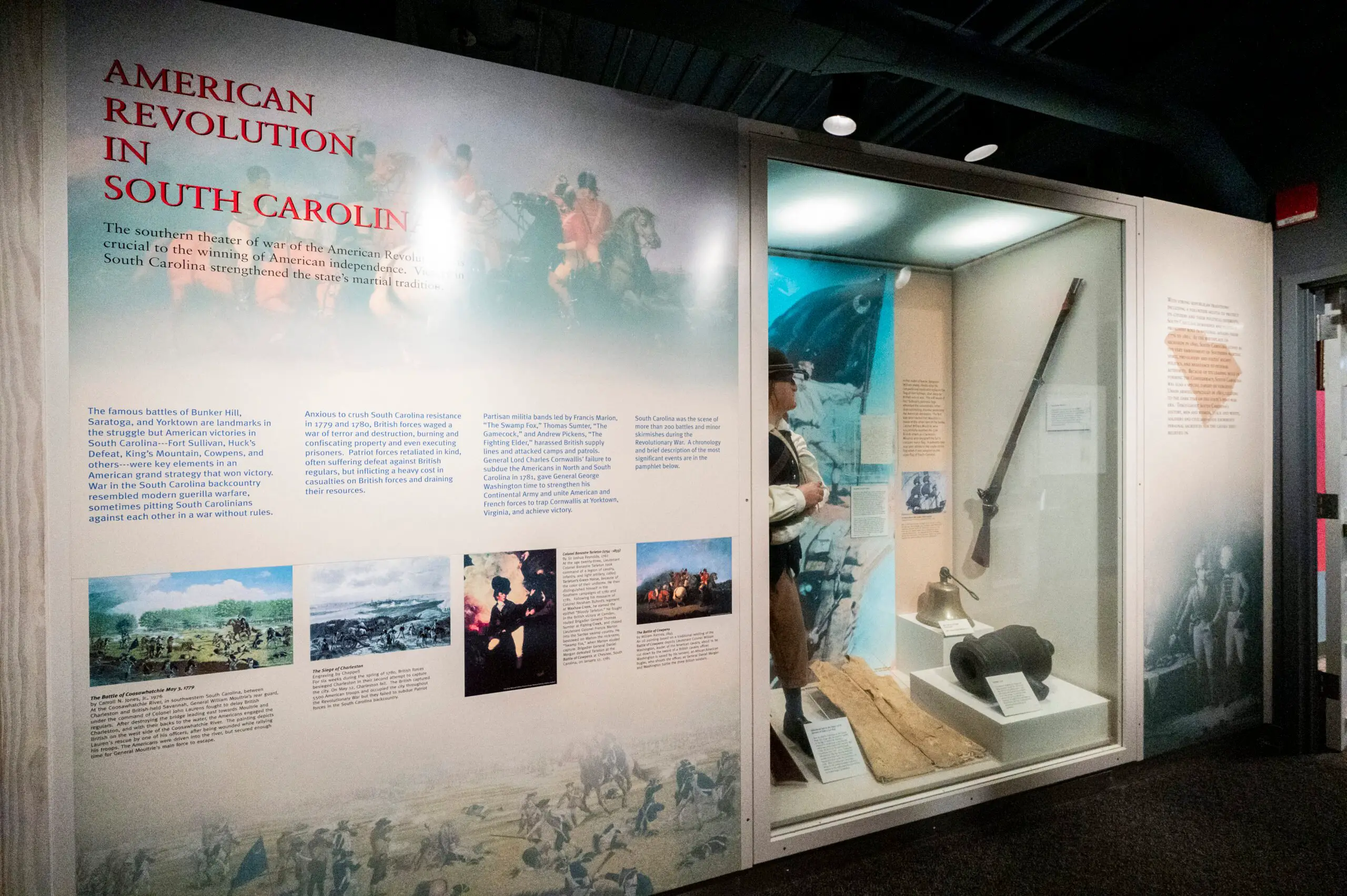Introduction
South Carolina is a state rich in history and southern hospitality. As an avid traveler in the United States, I have always been fascinated by the stories and legacies that each state holds. South Carolina, in particular, stands out with its unique blend of culture, traditions, and natural beauty.
Location and Geography of South Carolina
Located in the southeastern region of the United States, South Carolina boasts a diverse geography. From the breathtaking Blue Ridge Mountains in the northwest to the sprawling Atlantic coastline in the east, this state offers a plethora of stunning landscapes. Its sandy beaches, charming coastal towns, and picturesque marshlands make it a popular destination.
Importance of Understanding the History of South Carolina
To truly appreciate and immerse oneself in the beauty of South Carolina, understanding its rich history is crucial. This state played a significant role in the formation of the United States, including being one of the original thirteen colonies. From Native American settlements to European colonization, the history of South Carolina is a tapestry of diverse cultures and influences.
Overview of the Article
In this article, I will take you on a journey through the captivating history of South Carolina. We will explore the arrival of European settlers, delve into the era of rice and indigo, and witness the struggles and triumphs of the Civil War. Furthermore, we will discover the cultural heritage of the Gullah people and unravel the mysteries of the Antebellum architecture found in Charleston.
So, join me as we embark on an adventure to uncover the hidden gems and untold stories that lie within the history of South Carolina. From its historical landmarks to the warmth of its people, this state offers a truly enriching and unforgettable experience. Let’s dive in and explore the fascinating tapestry of South Carolina’s past.
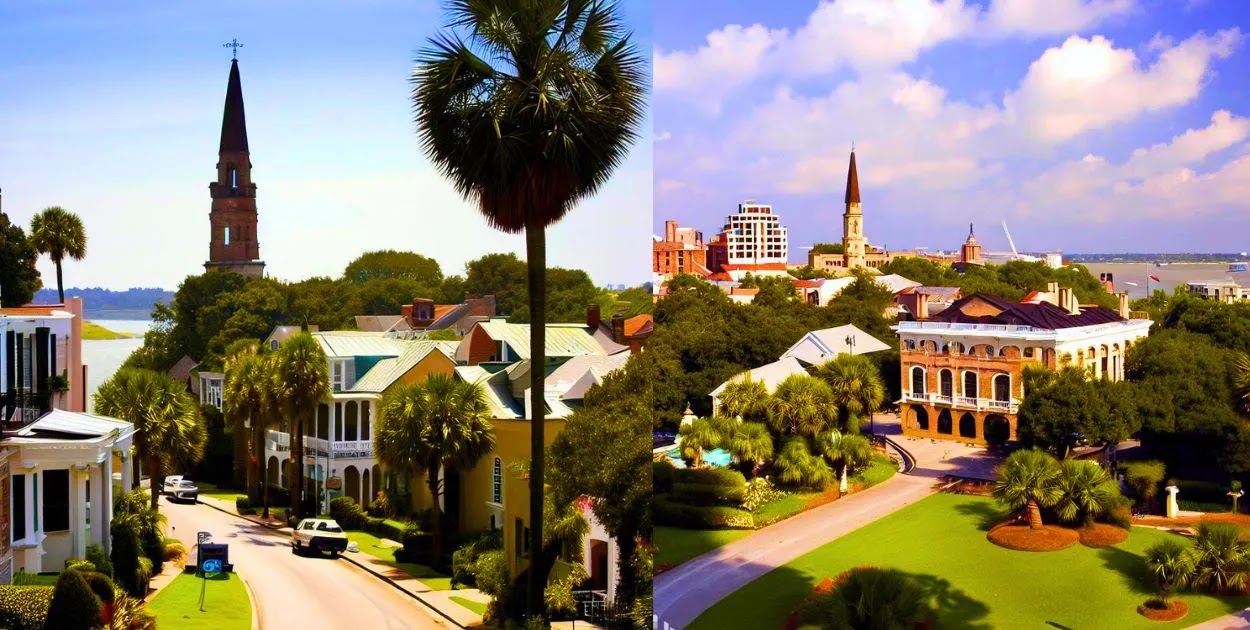
Exploring the Rich History of South Carolina
South Carolina, a state nestled in the heart of the American South, is not only known for its breathtaking landscapes and warm sandy beaches, but also for its rich historical heritage. As an avid traveler, I am always intrigued by places that offer a glimpse into the past, and South Carolina certainly does not disappoint. From ancient Native American tribes to the impact of European colonization, the history of this enchanting state is a tapestry woven with fascinating stories waiting to be uncovered.
Native American Presence
Ancient Native American tribes in South Carolina
Embarking on a journey to explore South Carolina’s history takes me back thousands of years, to a time when Native American tribes called this land their home. The state was once inhabited by several tribes, including the Cherokee, Catawba, and Yuchi. Each tribe held its unique customs, traditions, and beliefs, deeply rooted in a close connection to nature and an innate understanding of their surroundings.
Culture and lifestyle of Native Americans in the region
Reflecting upon their rich culture and lifestyle, I am enamored by the resourcefulness and ingenuity displayed by these tribes. They were skilled farmers, adept hunters, and master craftsmen, creating beautiful pottery and intricate jewelry. Their way of life was intricately intertwined with the land, respecting its bounties and preserving the harmony between nature and humanity.
Impact of European colonization on Native American communities
However, as with many ancient civilizations, the arrival of European explorers brought significant changes to the Native American communities in South Carolina. Disease, forced relocation, and violent conflicts resulted in the decline and displacement of these once-thriving tribes. The landscape forever changed as their villages vanished, leaving behind mere traces of their once vibrant presence.
Exploring the rich history of South Carolina offers a fascinating journey through time, where we can uncover the stories of ancient Native American tribes and witness the impact of European colonization. From their thriving communities to the hardships faced, the presence of these resilient people shaped South Carolina into the diverse and culturally rich state it is today. So, join me as we delve deeper into the captivating past of South Carolina and uncover the hidden gems that lie within its historical fabric. As I delve into the captivating history of South Carolina, I am reminded of the rich tapestry that makes up the story of this remarkable state. From its colonial beginnings to its pivotal role in American history, South Carolina’s past is as vibrant as the warm, Southern hospitality that still greets visitors today.
Colonial Era
Establishment of early European settlements in South Carolina
During the colonial era, South Carolina became a melting pot of cultures as various European powers sought to establish their presence. The English were the first to arrive, landing on the shores of South Carolina in search of new opportunities. They laid the foundation for the future state, establishing settlements such as Charles Town (now known as Charleston) in 1670.
Role of English, French, and Spanish in the colonization
While the English were the dominant force, the French and Spanish also had a significant impact on the colonization of South Carolina. The French Huguenots, seeking religious freedom, settled in the region and contributed to the diverse fabric of the state. The Spanish, on the other hand, explored the coast in search of wealth, leaving their mark on South Carolina’s history.
Growth of the economy through cash crops
The lush, fertile land of South Carolina proved ideal for agriculture, leading to the growth of a vibrant economy driven by cash crops. Indigo and rice became major exports, with the latter paving the way for the establishment of large plantations and the rise of an enslaved workforce. The cultivation of these cash crops brought prosperity to the region and greatly influenced the state’s development.
Life of colonists and their interactions with Native Americans
The early colonists of South Carolina faced numerous challenges as they sought to forge a new life in this untamed land. They encountered Native American tribes, such as the Cherokee and Catawba, learning from their traditions and engaging in trade. However, conflicts also arose as tensions between the colonists and Native Americans grew.
In exploring the colonial era of South Carolina’s history, I am captivated by the complex intertwining of cultures and the adversity faced by those who sought to shape the region. Each chapter reveals the resilience and diversity that continue to define this exceptional state.
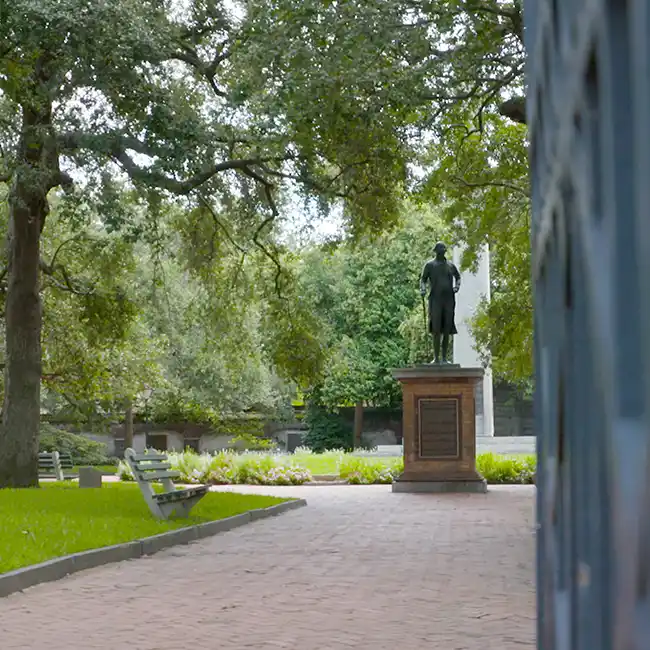
Revolutionary War Period
South Carolina has a rich history dating back to the Revolutionary War. This period was a crucial time for the state and played a significant role in shaping the nation we know today. Let’s dive into South Carolina’s contribution to the American Revolution, the notable battles and events that took place here, and the influential leaders who emerged from the state.
South Carolina’s role in the American Revolution
During the Revolutionary War, South Carolina was a crucial battleground, witnessing key events that shaped the outcome of the war. The state was the site of numerous battles, including the famous Battle of Charleston, where British forces captured the city after a long siege. This victory provided the British with a significant strategic advantage, making South Carolina a vital target for both sides in the conflict.
Significant battles and events in the state
Aside from the Battle of Charleston, South Carolina saw other pivotal moments during the Revolutionary War. One such event was the Battle of Kings Mountain, where American patriots, led in part by South Carolina’s very own Francis Marion, defeated a loyalist force. This victory was a turning point in the war, boosting morale among the American troops and setting the stage for future successes.
Contributions of South Carolina leaders like Francis Marion
Francis Marion, often referred to as the “Swamp Fox,” was a prominent leader during the Revolutionary War. Known for his guerrilla warfare tactics, Marion played a crucial role in harassing British forces and disrupting their supply lines. His efforts made a significant impact on the war’s outcome, earning him a reputation as one of the most skilled and resourceful commanders of his time.
South Carolina’s role in the Revolutionary War cannot be understated. The state experienced critical battles, such as the Battle of Charleston and the Battle of Kings Mountain, and produced exceptional leaders like Francis Marion. These contributions helped shape the course of the war and ultimately secured the independence of the United States. Exploring the rich history of South Carolina allows us to appreciate the sacrifices made by those who fought for our freedom and gain a deeper understanding of the roots of Southern hospitality.
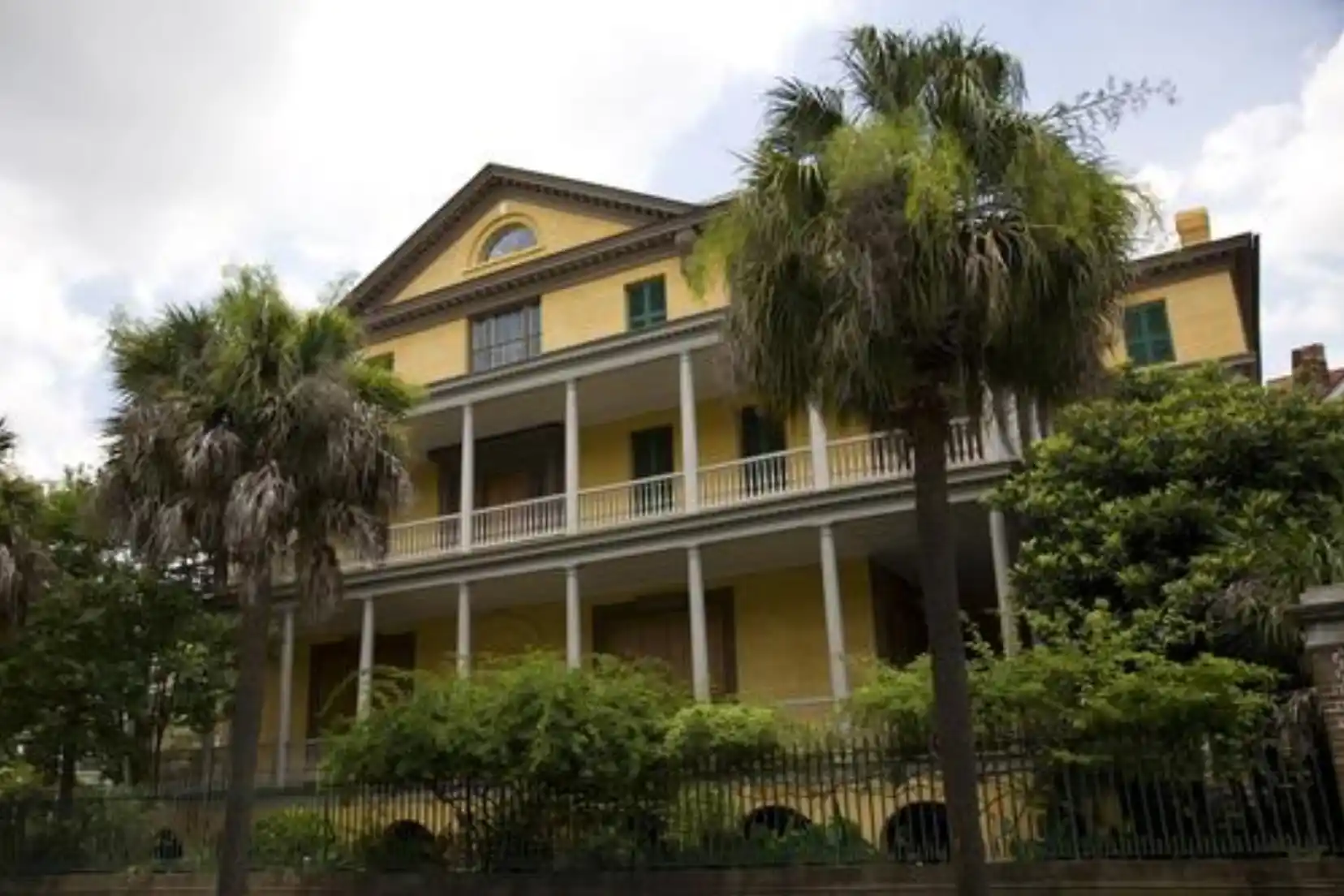
Antebellum Period
The beautiful state of South Carolina is not only known for its picturesque landscapes and warm Southern hospitality, but also for its rich and varied history. One period of history that stands out is the Antebellum Period, a time filled with the rise of plantation agriculture, the influence of vital industries, and the impact of slavery on the social and economic landscape.
The rise of plantation agriculture and slavery
During the Antebellum Period, South Carolina experienced a significant shift in its economy with the rise of plantation agriculture. The fertile soil and favorable climate provided ideal conditions for cultivating cash crops, such as rice, indigo, and cotton. As a result, large plantations flourished, leading to an increased demand for labor. This demand, unfortunately, led to the establishment of a brutal system of slavery.
Influence of rice, indigo, and cotton industries
Rice, indigo, and cotton were the main industries that fueled the economic prosperity of South Carolina during the Antebellum Period. The cultivation of rice, particularly in the low country, contributed to the state’s agricultural success. Indigo, a plant used for dye production, was also a valuable cash crop. Finally, the cotton industry soared, transforming South Carolina into one of the leading cotton producers in the United States.
Impact of slavery on the social and economic landscape
Slavery exerted a profound and lasting impact on the social and economic landscape of South Carolina. Enslaved African Americans were forced to endure unimaginable hardships as they toiled on the plantations. They faced backbreaking labor, harsh living conditions, and the constant threat of violence. Slavery not only shaped the state’s economy, but also created divisions in society that would persist long after its abolition.
Life of enslaved African Americans in South Carolina
The life of enslaved African Americans in South Carolina was marked by countless injustices and struggles. Families were torn apart, cultural traditions were suppressed, and basic human rights were denied. Despite these unimaginable hardships, enslaved individuals often found ways to resist their oppressors, through acts of rebellion, cultural preservation, and the cultivation of community.
As we delve further into the rich history of South Carolina, it becomes evident that the Antebellum Period played a defining role in shaping the state we know today. The rise of plantation agriculture, the influence of vital industries, and the profound impact of slavery all contributed to the complex and multi-faceted history of this remarkable state.
Civil War and Reconstruction
South Carolina’s secession from the Union
The Civil War stands as a significant chapter in the history of South Carolina, marking a pivotal moment when the state seceded from the Union. Fueled by deep-rooted tensions over slavery and states’ rights, South Carolina became the first state to secede on the eve of the Civil War. The decision to break away from the Union was driven by a belief in the preservation of Southern tradition and a desire to maintain control over their economic and political systems. This bold move set the stage for the devastating conflict that would follow.
Key battles fought in the state
During the Civil War, South Carolina witnessed several crucial battles that shaped the course of the conflict. The state’s most notable engagement was the Battle of Fort Sumter in Charleston, which ignited the war. This clash between Union and Confederate forces marked the beginning of hostilities and demonstrated the determination of both sides. Additionally, the Battle of Battery Wagner on Morris Island and the Battle of Honey Hill near Charleston were other significant encounters that showcased the state’s strategic importance in the Southern campaign.
Effects of the war on South Carolina’s economy and society
The Civil War brought immense devastation to South Carolina, both economically and socially. The state’s economy depended heavily on agriculture, particularly rice and cotton cultivation, which suffered greatly due to the disruption of labor and the destruction of infrastructure caused by the war. This resulted in a steep decline in wealth and prosperity, leaving many South Carolinians impoverished. Furthermore, the end of slavery brought immense challenges, as the state grappled with the transition to a new social order and the reintegration and empowerment of formerly enslaved individuals.
Reconstruction period and its challenges
Following the war, South Carolina faced the arduous task of rebuilding and recovering from the ravages of the conflict. During the Reconstruction period, the state experienced political, social, and economic upheaval. Efforts to establish equality for freed African Americans were met with resistance and violence, leading to the emergence of organizations like the Ku Klux Klan. Additionally, the state’s infrastructure required significant investment to repair the damage caused by prolonged warfare.
the Civil War and Reconstruction had a profound impact on South Carolina’s history and development. It forever altered the state’s economic landscape, social fabric, and political climate. Understanding this tumultuous period provides valuable insight into the struggles and triumphs that shaped the identity of South Carolina and its people.
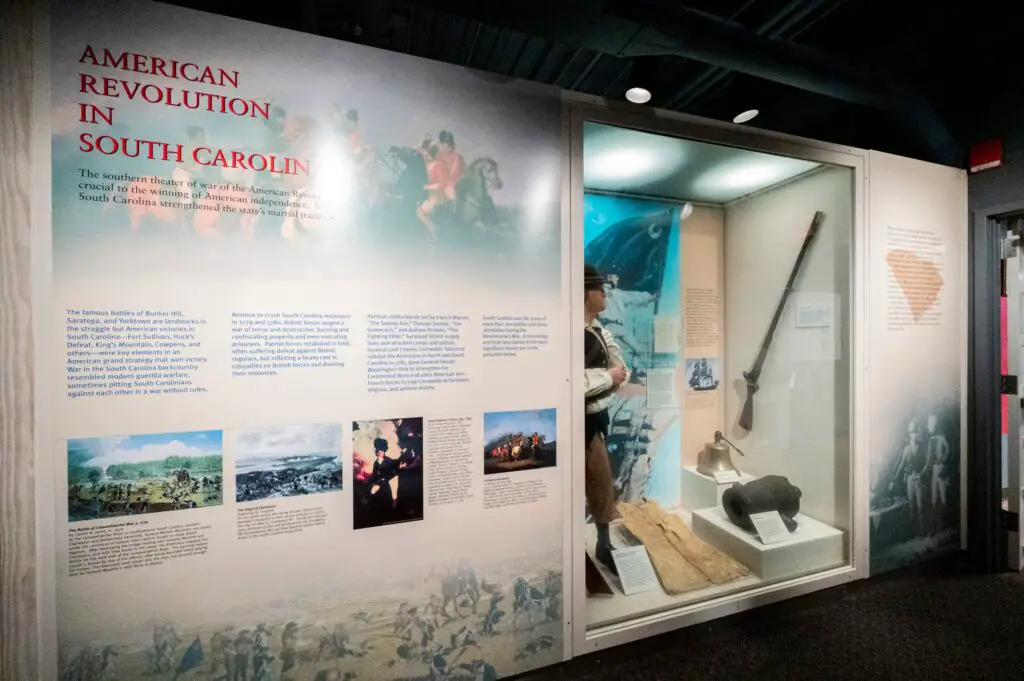
Jim Crow Era
During the rich and captivating history of South Carolina, there is one period that stands out for its significance and the impact it had on the state’s social dynamics: the Jim Crow Era. This era, which lasted for several decades, was characterized by the implementation of strict segregation laws, as well as widespread discrimination and racial violence.
Enactment of segregation laws in South Carolina
The Jim Crow Era in South Carolina was marked by the implementation of numerous laws that enforced racial segregation. Many public spaces, including schools, restaurants, and even public transportation, were legally segregated, with “separate but equal” being the justification behind these discriminatory practices. African Americans were forced to endure separate and often inferior facilities, reinforcing the deeply entrenched racial hierarchy that permeated society at the time.
Discrimination and racial violence
Unfortunately, the segregation laws were not limited to just physical spaces, as discrimination against African Americans extended to all aspects of their lives. They faced widespread prejudice and limited access to employment opportunities, often being relegated to low-paying jobs with little room for advancement. Additionally, racial violence was prevalent during this period, with lynchings and acts of terror serving as terrifying reminders of the deep-seated racism that plagued the state.
Notable civil rights leaders during this period
Despite the adversity faced during the Jim Crow Era, South Carolina also produced notable civil rights leaders who courageously fought against segregation and discrimination. Figures such as Septima Clark, Modjeska Simkins, and Benjamin Mays played instrumental roles in championing civil rights and paving the way for future generations. Their unwavering commitment to equality and justice left an indelible mark on South Carolina’s history.
Exploring the rich history of South Carolina would be incomplete without delving into the transformative Jim Crow Era. It serves as a stark reminder of the immense challenges faced by African Americans during this time, as well as the resilience and determination of those who fought for equality. This period shaped South Carolina’s identity and laid the foundation for the civil rights movements that followed.

20th Century Developments
Industrialization and urbanization in South Carolina
South Carolina saw significant changes in the 20th century, marking a departure from its predominantly agricultural past. With the rise of industrialization, cities like Charleston, Columbia, and Greenville experienced rapid urbanization. As factories sprung up, the state witnessed a shift towards a more industrial economy, diversifying from its traditional dependence on agriculture.
Impact of World Wars on the state’s economy and society
The two World Wars had profound effects on South Carolina’s economy and society. During World War I, the state experienced a boom in textile manufacturing as it became a crucial supplier to the war effort. This led to the emergence of textile mills across the state, providing employment opportunities and stimulating economic growth.
Similarly, World War II brought about remarkable changes to South Carolina. The state became an essential hub for military training bases, including Fort Jackson and Parris Island Marine Corps Recruit Depot. The influx of soldiers and increased defense spending revitalized the economy, creating jobs and bolstering industrial production.
Civil rights struggles and progress
The 20th century also witnessed pivotal civil rights struggles in South Carolina. The state played a significant role in the fight for equality and justice. The landmark Briggs v. Elliott case, which was instrumental in the Supreme Court’s ruling on Brown v. Board of Education, originated in Clarendon County, South Carolina. This case challenged the segregation of public schools and was a key milestone in the civil rights movement.
South Carolina has made significant strides towards progress in civil rights. Efforts to desegregate schools, public facilities, and institutions were met with resistance, but ultimately paved the way for a more inclusive and equal society.
the 20th century brought forth immense changes to South Carolina. The state’s industrialization and urbanization, shaped by the impact of two World Wars, transformed its economy and way of life. Additionally, the civil rights struggles and progress in South Carolina have left an indelible mark on the state’s history, making it an important part of the overall fabric of American history.
As a history enthusiast and a lover of southern hospitality, exploring the rich history of South Carolina has been an incredible journey for me. From its vibrant cultural heritage to its renowned artists, authors, and musicians, this captivating state offers a delightful tapestry of experiences that any traveler would appreciate.
Cultural Heritage
One of the most fascinating aspects of South Carolina’s history is its Gullah Geechee culture. The Gullah people are descendants of West African slaves who settled in the Lowcountry region. Their unique language, cuisine, and traditions have been preserved for generations, serving as a testament to resilience and cultural pride. Exploring Gullah Geechee communities and participating in their storytelling, music, and crafts is an enriching experience that truly immerses you in this distinct culture.
Famous South Carolinian Artists, Authors, and Musicians
South Carolina has nurtured and inspired countless creative minds who have left an indelible mark on the world. From the literary genius of James Dickey to the soulful melodies of James Brown, the state has birthed an impressive array of artists, authors, and musicians. Visiting art galleries, attending live performances, and exploring the hometowns of revered figures like Jasper Johns and Pat Conroy will undoubtedly ignite your own artistic sensibilities.
Traditional Cuisine and Culinary Delights
No exploration of South Carolina’s history would be complete without savoring its traditional cuisine. Indulge in mouthwatering delights such as shrimp and grits, she-crab soup, and frogmore stew, all deeply rooted in the state’s history and flavors. Whether it’s sampling delectable barbecue or enjoying a homemade pecan pie, the culinary journey through South Carolina is a feast for the senses that showcases the region’s agricultural heritage and culinary expertise.
South Carolina’s rich history is a treasure trove waiting to be discovered. From delving into the vibrant Gullah Geechee culture to delving into the artistic and literary legacies of its notable figures, this state offers endless opportunities for exploration and appreciation. And of course, no visit to South Carolina would be complete without savoring the mouthwatering traditional cuisine that has come to define this charming southern state. So, come, wander through the palmetto-lined streets, listen to the soulful melodies, and savor the flavors that make South Carolina a truly enchanting destination.
Natural Beauty and Attractions
When it comes to exploring the rich history of South Carolina, one cannot deny the exquisite natural beauty and fascinating attractions this state has to offer. From its scenic landscapes and national parks to its stunning beaches, rivers, and water-based activities, South Carolina has something for everyone.
Exploring the scenic landscapes and national parks
As I ventured through South Carolina, I found myself captivated by the breathtaking landscapes that encompassed the state. The lush greenery, majestic mountains, and serene lakes provided a serene escape from the busy city life. At the numerous national parks scattered throughout the state, I had the chance to hike along picturesque trails, spot diverse wildlife, and immerse myself in the tranquility of nature. Whether it was exploring the dense forests of Congaree National Park or marveling at the stunning waterfalls in Devils Fork State Park, every experience left me in awe of South Carolina’s natural beauty.
Beaches, rivers, and water-based activities
South Carolina boasts a coastline that stretches for miles, adorned with pristine beaches that offer not only relaxation but also an array of recreational activities. From sunbathing on the sandy shores to swimming in the crystal-clear waters, I found myself indulging in the true essence of coastal living. The rivers, too, provided endless opportunities for adventure. Whether it was kayaking down the gentle currents of the Catawba River or paddleboarding across the serene Lake Jocassee, the water-based activities in South Carolina left me exhilarated and refreshed.
Historical sites and landmarks
No exploration of South Carolina’s rich history would be complete without visiting its numerous historical sites and landmarks. From the grandeur of Charleston’s historic district, where cobblestone streets and antebellum homes tell tales of the past, to the solemn grounds of Fort Sumter, where the first shots of the Civil War were fired, each visit allowed me to step back in time and gain a deeper understanding of the state’s historical significance. The stunning architecture, informative museums, and knowledgeable tour guides brought the stories of South Carolina’s past to life and left me with a profound appreciation for the state’s unique heritage.
South Carolina truly offers a delightful blend of natural beauty and historical landmarks, making it an ideal destination for those seeking both adventure and a glimpse into the past. Whether it’s exploring scenic landscapes, enjoying water-based activities, or immersing oneself in history, this state guarantees a memorable and enriching experience.
Preservation and Education
South Carolina boasts a rich and diverse history that can be traced back for centuries. As I explore this fascinating state, I am struck by the efforts made to preserve its historical sites and educate present and future generations about its rich heritage.
Efforts to preserve South Carolina’s historical sites
Every corner of South Carolina seems to have a story to tell, and it is heartening to see the dedication to preserving these stories. From the majestic plantations that whisper tales of a bygone era to the battlefields that bear witness to the struggles of the Civil War, historical preservation is taken seriously in this state. Buildings are meticulously restored, artifacts are carefully preserved, and funding is allocated to ensure that these treasures are maintained for generations to come.
Role of museums, archives, and educational institutions
Museums, archives, and educational institutions in South Carolina play a vital role in preserving its history. Museums house extensive collections of artifacts and exhibits that bring the past to life, allowing visitors to immerse themselves in the state’s rich heritage. Archives act as custodians of historical documents, photographs, and records, offering researchers and enthusiasts invaluable resources to delve deeper into the past. Additionally, educational institutions actively collaborate with historians, researchers, and community members to conduct research, develop educational programs, and organize events that help in understanding and appreciating the state’s history.
Importance of educating future generations about the state’s history
As I learn about South Carolina’s history, I realize the importance of educating future generations about their roots. By understanding the challenges and triumphs of the past, young people can develop a sense of pride in their state, fostering a strong connection to their heritage. Moreover, learning about history instills critical thinking skills, empathy, and a broader perspective on the world. By ensuring that South Carolina’s rich history is taught in schools and made accessible through various educational initiatives, we can cultivate a knowledgeable and engaged citizenry that values and respects the past.
South Carolina’s commitment to preserving its historical sites, the role of museums, archives, and educational institutions, and the importance of educating future generations about the state’s history all contribute to a vibrant and thriving exploration of the past. As I continue my journey through this remarkable state, I am grateful for the opportunities to connect with its history and share in its Southern hospitality.
Conclusion
In conclusion, South Carolina is a state with a truly fascinating and rich history that is worth exploring. From its early Native American inhabitants to its colonial past and its pivotal role in the American Civil War, there is so much to learn about and appreciate in this southern gem.
Summary of South Carolina’s rich history
South Carolina’s history is like a tapestry that weaves together various cultural influences and significant events. From the first European settlers who arrived in the 16th century to the establishment of the colony of Carolina, the state has a deep colonial heritage. You can discover the stories of revolution and independence as you explore historical sites like Fort Sumter and Patriots Point Naval & Maritime Museum.
The state is also known for its significant role in the American Civil War. A visit to places like the Fort Sumter National Monument and Magnolia Cemetery can transport you back in time and help you understand the impact of this war on the state and its people.
Appreciating the diverse heritage and contributions
South Carolina’s rich history is not limited to its colonial and Civil War eras. The state is also home to a diverse range of cultural influences, including contributions from African Americans, Native Americans, and European immigrants. From exploring the Gullah Geechee culture to visiting historical sites related to African American history, such as the Avery Research Center and the Penn Center, there are countless opportunities to appreciate and learn about the diverse heritage of South Carolina.
Encouragement to explore and learn more about the state
I strongly encourage everyone to explore South Carolina and delve into its rich history. Whether you’re a history enthusiast or simply curious about the past, this state has something to offer. Take the time to visit historical sites, museums, and cultural centers, and allow yourself to be immersed in the stories and experiences that have shaped South Carolina.
So grab a guidebook or browse the internet for historical sites and events, and embark on a journey through time as you uncover the captivating history of South Carolina.
